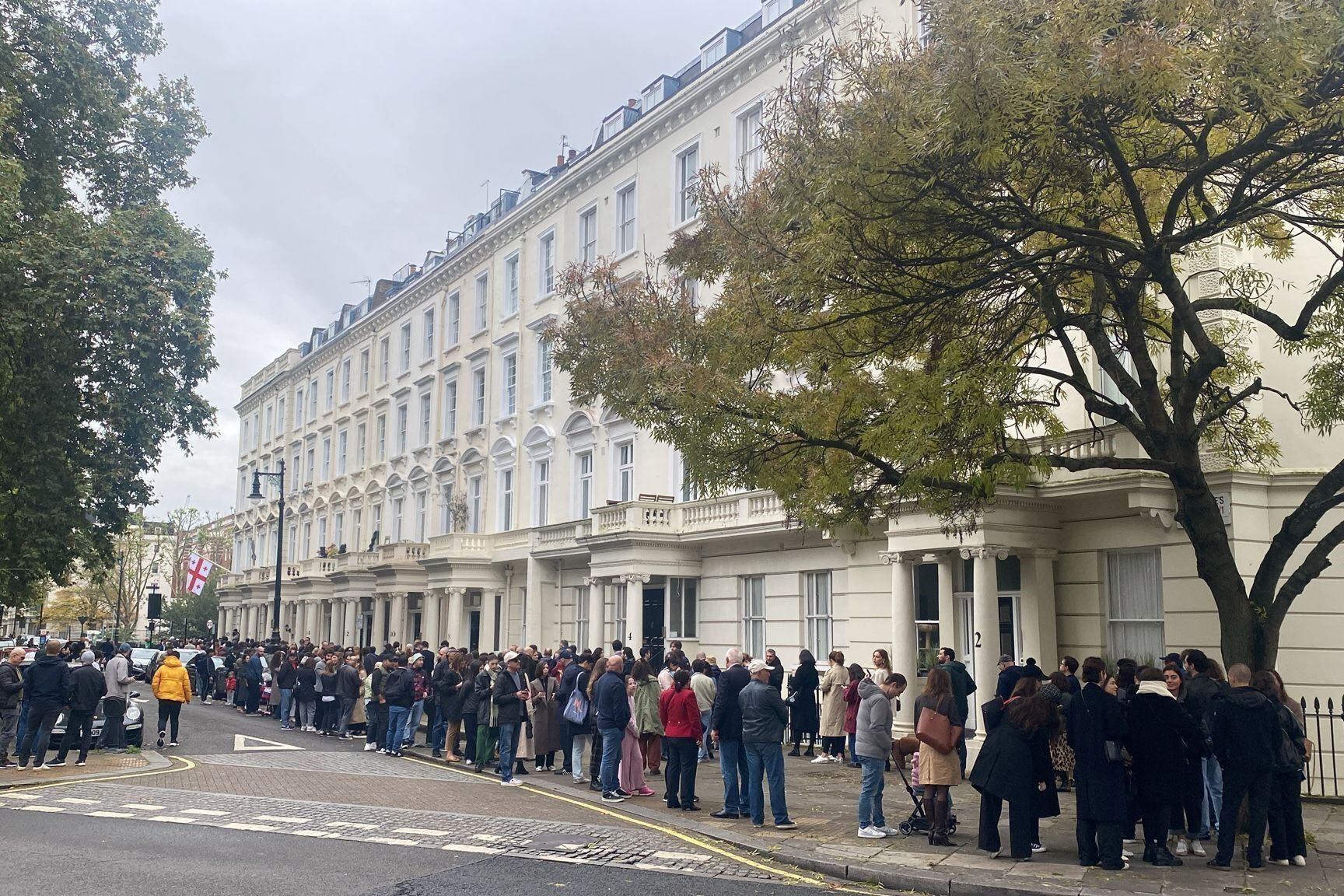Diaspora Georgians ‘disenfranchised’ by barriers to voting abroad, observer group says

An observer group has accused Georgian authorities of disenfranchising immigrants by placing excessive and unjustified obstacles that limited their ability to take part in the October parliamentary elections from abroad.
My Vote, an organisation that monitored the 26 October parliamentary elections in Georgia, issued a scathing report on the conduct of voting arranged abroad for Georgian citizens by the authorities, describing it as ‘completely inappropriate’.
The report alleged that electoral authorities ‘created insurmountable and unjustified barriers for voters at all stages of the election process’, both during the registration phase and on the voting day, which ‘restricted the right of thousands of Georgian citizens to participate in the elections’.
My Vote stated that the Georgian government failed to provide sufficient and proper venues and an adequate number of properly trained staff for overseas polling places, resulting in long queues and some voters being unable to cast their ballots despite waiting in line for hours.

The report cited polling station 64 in Rome as an example, stating that its small size caused chaos and noting that similar situations were observed at other stations in Paris, Madrid, Barcelona, Frankfurt, Berlin, and Prague.
My Vote also highlighted four polling stations in New York where voters were forced to wait in long queues outdoors in the cold, with no access to public toilets. Inside, according to the report, the poor ventilation made it challenging for voters to cast their ballots and for observers to monitor the process effectively.
Following the elections, Natia Saralidze, a Georgian national based in New York, told OC Media that while she had no issues registering at the consulate for the special list, she witnessed a number of problems in other areas as she voted at one of the polling stations.
‘There were only three inexperienced registrars and two voting booths, one of which was broken and was not used. The room [of the polling station] was 10 square metres in size’, lacking ventilation, according to Saralidze.
‘All four polling stations [in New York] were located in one building, with no one managing the queue. The police were not initially informed of the large crowds, and later they had to set up barricades and close off streets. We all had to wait in line for at least 5-6 hours’, Saralidze told OC Media.
My Vote also alleged that the officials at polling station 38 in Athens completely denied its observer entry and later banned the organisation from documenting the process, with the election clerk even refusing to register My Vote’s complaint.
In general, My Vote said that for the polling stations opened for Georgians abroad, there was only one voting booth and one registration officer for every 1,500 voters, significantly less than the recommended ratio of one booth for every 500 voters and one officer for every 300 voters.
The organisation stated that some polling stations posed risks to the secrecy of the ballot, citing unstable voting booths and, in the case of polling stations in Tallinn, Barcelona, Frankfurt, Riga, Helsinki, Prague, and Brussels, the presence of unauthorised Georgian consuls.
Drawing on reports from their observers monitoring ballot casting in various cities outside Georgia, My Vote stated that many voters — at polling stations in Milan, Berlin, New York, Washington, London, Rome, Madrid, Istanbul, and Vienna — were missing from the lists. Additionally, some voters registered to vote in Stuttgart, Frankfurt, and Rome were mistakenly included on voter lists for other cities.
The report noted that it was ‘inexplicable to them how they ended up on the lists of other electoral districts’.
My Vote also highlighted that CEC initially excluded internally displaced people (IDPs) and voters with unclear registration addresses from voter lists and accommodated them only after protests. The group also criticised the electoral authorities for ultimately refusing to increase the number of polling stations abroad, despite demands that emerged in late 2023 and grew stronger in the lead-up to the elections.
On 26 September, a month before the vote, Georgia’s Central Election Commission (CEC) announced plans to open only 60 polling stations across 42 countries, later adding just seven more. The CEC’s decision came despite petitions and campaigns by the Georgian diaspora — primarily in Western countries — who self-registered and mobilised compatriots to do the same and advocate for additional stations.
‘Voters who could not travel unreasonably long distances remained disenfranchised’, My Vote concluded.









